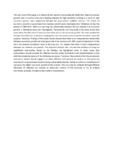Please use this identifier to cite or link to this item:
https://cris.library.msu.ac.zw//handle/11408/1225| Title: | Causal relationship between government tax revenue growth and economic growth: a case of Zimbabwe (1980-2012) | Authors: | Dzingirai, Canicio Tambudzai, Zachary |
Keywords: | Government tax revenue growth, Economic growth, Causal relationship | Issue Date: | 2014 | Publisher: | IISTE | Series/Report no.: | Journal of Economics and Sustainable Development;Vol.5, No. 17: 10 - 21 | Abstract: | The main aim of the paper is to demystify the mystery surrounding the belief that, high tax revenue growth rates is a prima facie and a leading indicator for high standards of living as a result of high economic growth rates engineered through the government multiplier process. The effects of economic growth on government tax revenue growth were investigated for Zimbabwe during the period of 1980-2012. Short-run and long-run relationship between the tax revenue and economic growth in Zimbabwe were also investigated. Theoretically and empirically it has been found that taxes affect the allocation of resources and often distort the economic growth. The study applied the Granger Causality test, Johansen’s cointegration test and vector error correction model to serve the purpose. However, findings of this study clearly showed that there is an independence relationship between economic growth and total government tax revenue with 30% speed of adjustment in the short run towards equilibrium level in the long run. This implies that there is fiscal independence between tax revenue and growth. The empirical analysis also provides the evidence of long-run equilibrium relationship. Based on the findings, we highlighted some of major issues that policymakers should consider for effective taxation policy formulation and implementation in line with the complexity nature of the Zimbabwe economy. Therefore, the outlook is that the economists and policy makers should suggests an ideal, efficient and buoyant tax system so that gross tax revenue of the government would increase substantially thereby leading to optimum mobilization of resources for higher economic growth of the country. This can only be achieved through efficient allocation of collected tax revenue to production sectors of the economy to try to achieve distributive principle through societal welfare maximization. | URI: | http://hdl.handle.net/11408/1225 | ISSN: | 2222-1700 |
| Appears in Collections: | Research Papers |
Files in This Item:
| File | Description | Size | Format | |
|---|---|---|---|---|
| Causal Relationship between Government Tax Revenue Growth.pdf | Abstract | 199.02 kB | Adobe PDF |  View/Open |
Page view(s)
54
checked on Jul 25, 2024
Download(s)
36
checked on Jul 25, 2024
Google ScholarTM
Check
Items in MSUIR are protected by copyright, with all rights reserved, unless otherwise indicated.



